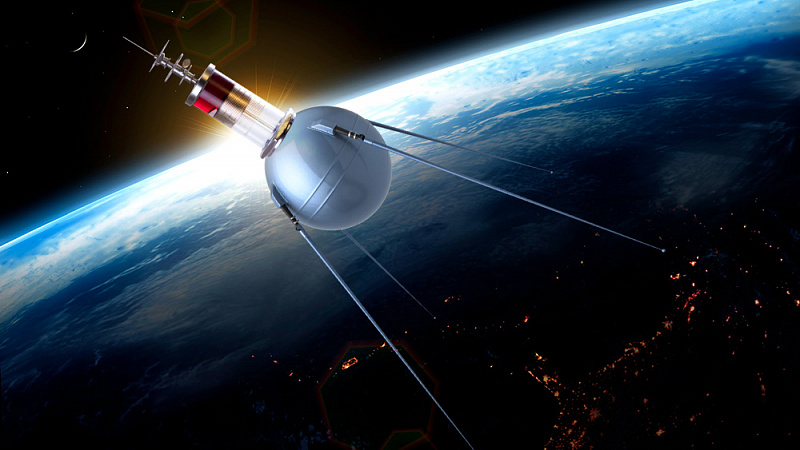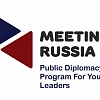Dr. Dmitry Kulish is a molecular pharmacologist by education and an expert in modern pharmaceutical industry by experience. Dr. Kulish earned his PhD in biochemistry from the Moscow Institute of Molecular Genetics, then continued his postdoctoral research at Harvard Medical School and obtained his MBA degree from the Wharton School of Business. Dmitry served in top executive positions at R-Pharm, Nanolek, Bioprocess/Pharmapark, Fresenius Kabi, as well as numerous biotech start-ups. Dr. Kulish personally participated in the development of vaccines for HCV (Neurok Pharma), HBV (Binnopharm), vector-based flu (Nanolek), and HPV (R-Pharm).
On several occasions, Dr. Kulish worked on contracts with Gamaleya National Research Center for Epidemiology and Microbiology. At Skoltech - Skolkovo Institute of Science and Technology - Professor Kulish serves as a Director of Innovation Workshop, the anchor course of the Entrepreneurship & Innovation curriculum putting the entire incoming Skoltech class into the month-long vortex of innovation challenge, culture, and community building. He also teaches courses on "Healthcare Innovation" and "Leadership for Innovators".
Based on the discussion "Is Sputnik V the only alternative for the EU?" conducted by Globallis, Meeting Russia Alumnus Peter Levstek and PICREADI, Dr. Kulish answers the most frequently asked questions from European colleagues.
How did the Russians come to make complicated pharmaceutical products?
Dmitry Kulish: It is true that the Russian pharmaceutical industry was almost non-existent 10-20 years ago, so the skeptical voices are well understood. Still, it is crucial to admit that certain areas of research and technology never disappeared in Russia and vaccines were the most solid ground.
Right after the initial development of adenoviral platform in the US in the late 20th century, it was chosen by Dr Naroditsky's lab and stubbornly nurtured through all the turmoil of modern Russian history. In addition, Dr Gintzburg's team remained the top authority on interferon signaling and production: they developed the most potent INF stimulators on the global scale. |
Furthermore, the Russian vaccine industry never died: the Chumakov Institute was always a global leader in whole virion vaccines, and even obtained WHO PQ (pre-qualification) for its yellow fever vaccine. Microgen has always served all Russian children with basic vaccines and in the early 21st century turned out to be the in top 3 world producers of the DTP+MMR combination, which is the most fundamental vaccine combination for infants.
Last but not the least, the Russian government has been intensively nurturing the local pharma industry since 2010 (Pharma 2020, mega grants, and more). At the historical meeting of President Putin with key Russian vaccine developers in Spring 2020, there were around a dozen independent labs that brought their proposals to develop diverse kinds of COVID vaccines. The Gamaleya Center was the best by a long shot. So, it's not a miracle or ghost story that the Gamaleya Center has developed the Sputnik V vaccine now.
Fun fact: the vaccine by Gamaleya Institute was initially simply named Sputnik, but this name happened to be already occupied. French virologists employed it several years ago to christen one very special viral vector. To distinguish the current glorious vaccine, the letter "V" was added that most probably stands for "Victory".1 How did the Russians come to make complicated pharmaceutical products?
How can a vaccine be developed in just a few months?
Dmitry Kulish: According to the disclosures of the Gamaleya Center, the Sputnik V vaccine is fully based on the MERS and SARS vaccines that were developed at the Gamaleya Center for many years and went through extensive preclinical and clinical research. All proper principal preclinical and clinical toxicology was performed at the "backbone" of the previous vaccines, while the Sputnik V was obtained by inserting the SARS-CoV-2 antigen into this well-validated backbone. Hence one should not say that Sputnik vaccine was developed in several months. On the contrary, it was developed during 5-10 years of intensive research on the vaccines for SARS, MERS, and Ebola. This research was carried out with major government support, not only at the Gamaleya Center, but also at the State Research Center of Virology and Biotechnology VECTOR in Novosibirsk, and, of course, Chumakov Federal Scientific Center for Immunobiological Products.
Why did Russia start to export such a large part of the vaccine production?
Dmitry Kulish: This is an important question because Brussels politicians are speculating on this topic. They say they can't trust a vaccine that it isn't trusted by the people of Russia. The answer to this question is twofold.
First, it's not correct to say that the decision was made to export the majority of local production. The decision was made to localize the production of Sputnik all around the world. |
4 key manufacturers (Argentina, India, Brazil, Korea) promised to produce 1 billion dosages per year. Therefore, I would disagree that we decided to export a local production: we decided to spread the vaccine instead. This is what Pfizer didn't do at the very beginning, and today, when President Biden is called to restrict intellectual property rights to Pfizer, they try to make a procedure that was done already for Sputnik. Russian local production will stay at around 150 million dosages per year to cover local demand.
The second level is a problem of trust in relation to vaccines. In Russia, we have very dramatic circumstances of manipulative European and American propaganda against Sputnik V vaccine that occurred during last August-September. For me as a scientist, who lived in the US for 10 years, it is a personal tragedy: I was reading the newspapers I've loved for all my life (such as Science magazine or National Geographic, etc.) and looking at the manipulative propaganda on why the Sputnik vaccine is bad. The numbers are hard to define, but some people say only about 50% or even 30% of Russians are ready to vaccinate. We do have progress, but still, it's a low number. Therefore, honestly, when we decide to export, it's not a topic of politics, but a topic of the supply-demand market economy. As soon as we have a higher demand in Russia, we will immediately satisfy it with local production.
Why do you think Vladimir Putin was only vaccinated in April, while the vaccination in Russia started in December?
Dmitry Kulish: I'm not in a position to comment on his personal decision, but I know one reason why he didn't get vaccinated before April. I'm grateful to him for this. From my personal point of view, as a professor of healthcare innovation, I find both my personal and professional missions to support each innovator in Russia under any possible circumstances. So far, we have three COVID vaccines in Russia: Sputnik, EpiVacCorona, and CoviVac. President Putin was vaccinated 2 days after the third vaccine, CoviVac, was opened in Russia for mass vaccination. As Sputnik was ready for mass vaccination in December, there was a sense to give equivalent support to all the three pharmaceutical innovators and wait until all of them could be open to the masses.
Are international partnerships in the development or production of a vaccine possible between Russia and the Western countries?
Dmitry Kulish: On a scientific level, we never stop partnering and communicating, even today, at the peak of a bitter industrial vaccine competition. For instance, one of the most popular discussions today is that in the future we will most likely have a combined regiment of entire covid-vaccination, optimized for patients. Today there is competition between the whole-virus vaccine and matrix/adenoviral vaccine. In spring 2020, the partnership was at its highest level for many years. There were several international conferences, where scientists all around the world got together to discuss the potential of different approaches to vaccines. If we take that level of partnering for 100%, today they partner at maybe 50%, but it still happens. Why is it lower today? Because business came, and in business, you have to compete. It's not a barrier to any partnership in the future, so I'm quite optimistic about this cooperation. When you're in chaos, you're always the partners, otherwise, you won't survive. When you are in an organized success, you're immediately starting to compete and try to obtain the fruits of success. Three years later, we will find ourselves in chaos again, as it is cyclical.
Are there any consequences from the Sputnik V vaccine that we aren't hearing about in the media?
Dmitry Kulish: I'll try to give you only strict facts on this issue, and then you can process them in any way you enjoy. The most famous vaccination rumor in Russia is that Sputnik has problems with fertility. When I run the discussion, I show my opponents that the first publication about the fertility problem of the COVID-vaccine was made by the ex-Pfizer vice president and published in Great Britain. One of the Russian newspapers translated it, replacing "Pfizer" with "Sputnik". Actually, we can destroy this fake, just having documents in our hands.
How should Russia transform its soft power in order to advance in European market?
Today's problem is not the manufacturing of the vaccine, today's problem is convincing people to get vaccinated. The key issue to vaccination is people's trust. That's why I support any discussions between Russia and Europe. |
We need to build trust, we need to build bridges. Such meetings help to create the bridges that, historically, are what we need on this continent.
We have to work hard and together to build trust in vaccination. The example of Israel or Scotland who vaccinated their population at an amazing speed and totally eliminated any cases of disease today proves that vaccination is a way out of coronavirus. The hesitance of people to get vaccinated which is related to conspiracy theories or to disbelief in science and government is a cordon stopping people from being happier. Hopefully, after this discussion, each of us will call a relative or friend and say "hey, maybe we should get vaccinated?". Vaccinate yourself with Pfizer, AstraZeneca, Sputnik, or any other vaccine, because it is the way out of this coronavirus mess.





